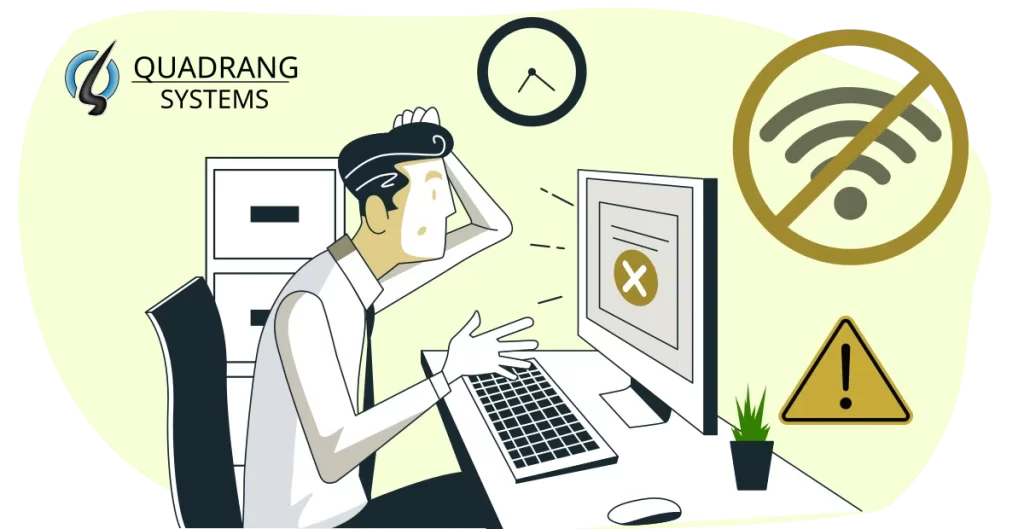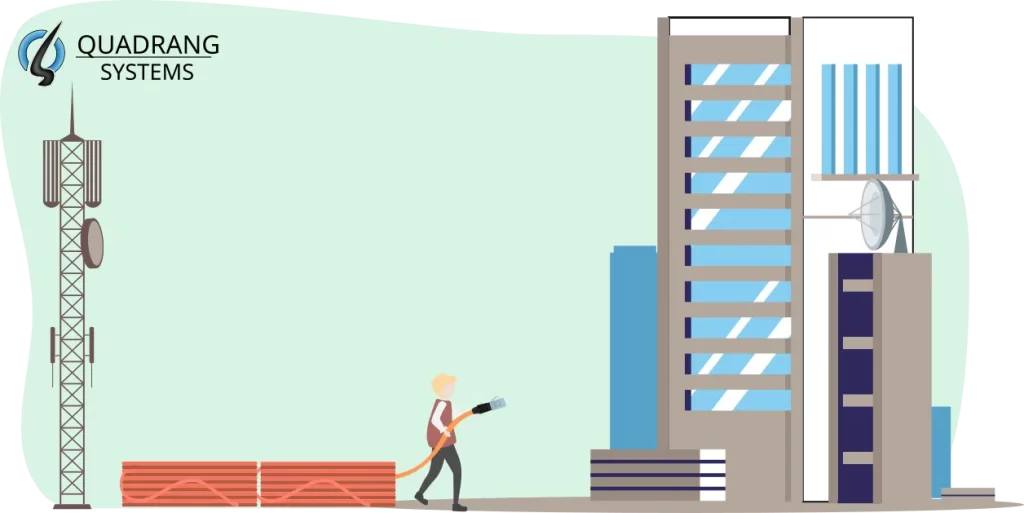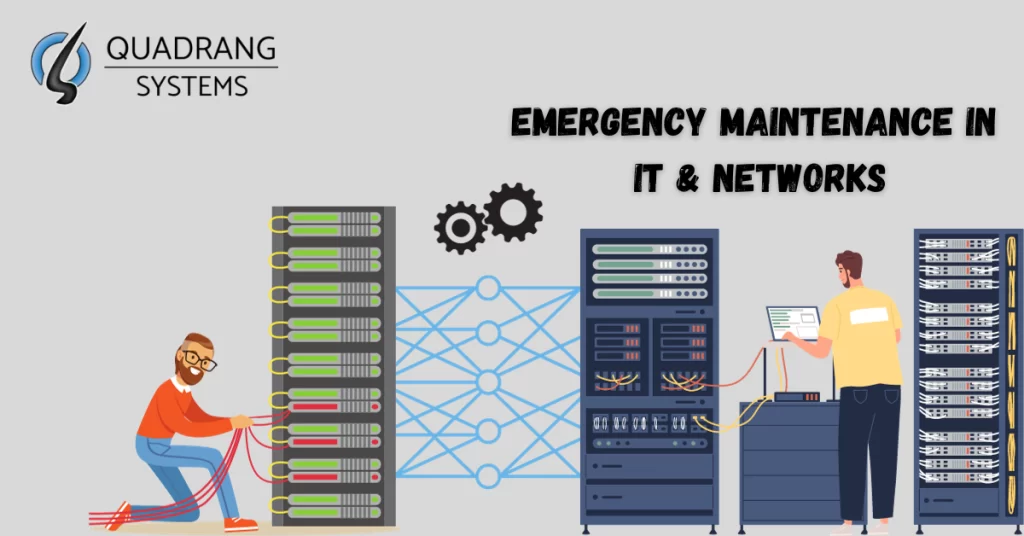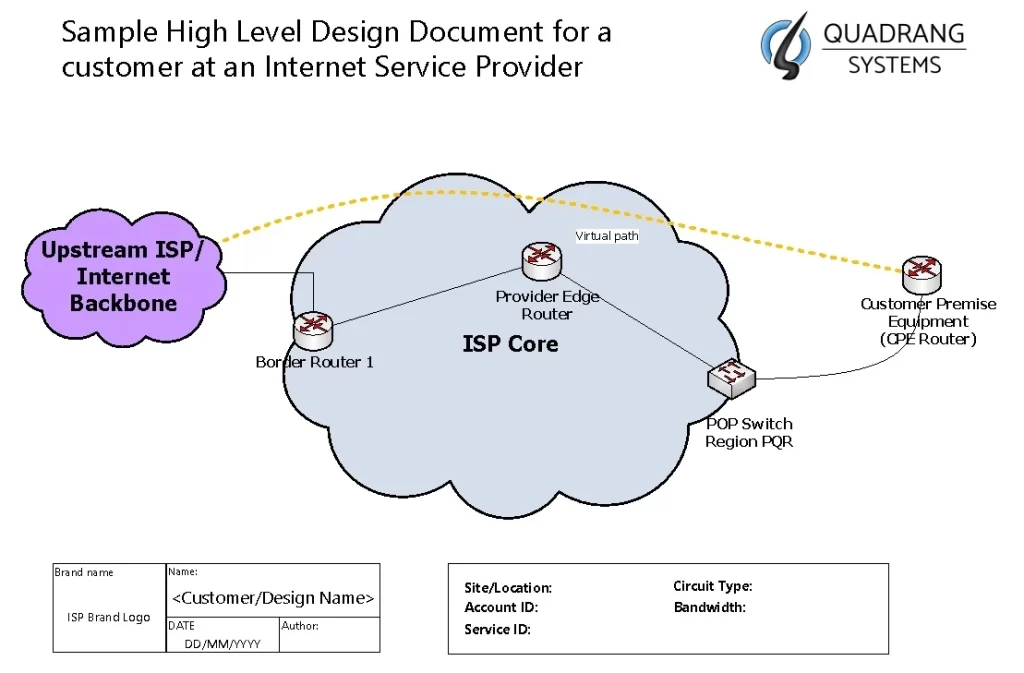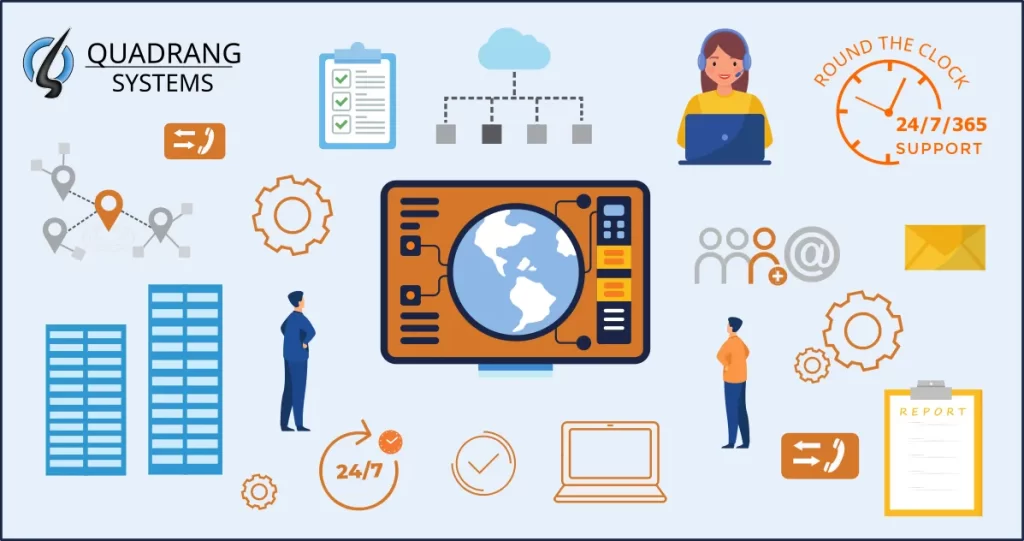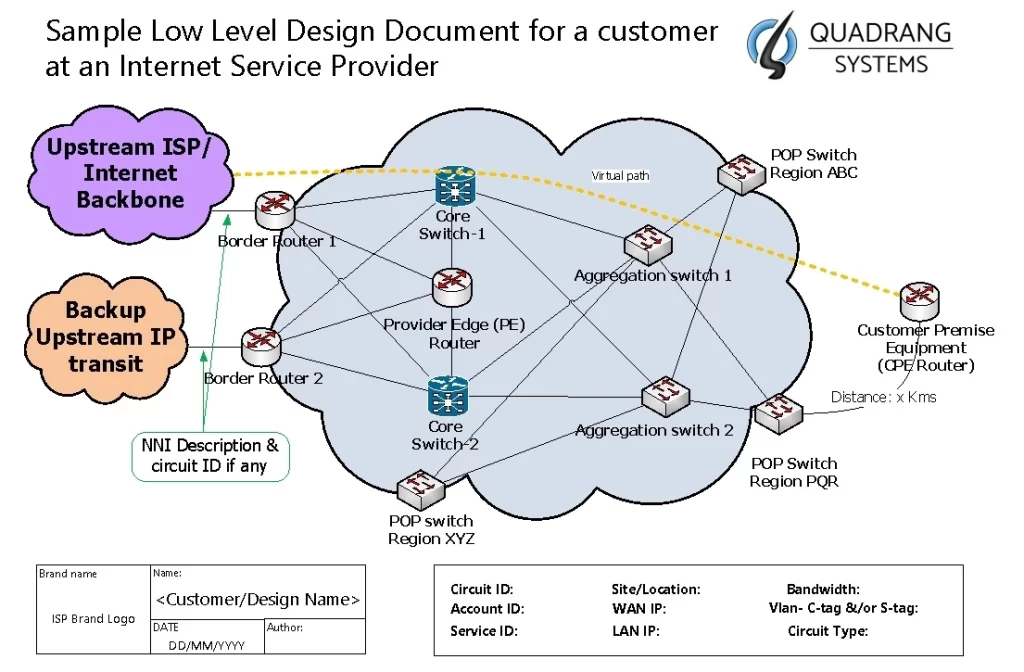Enterprise Network Management: The foundation of every modern company
In today’s digital landscape, effective network management and continuous monitoring are crucial for businesses to maintain a competitive edge. As enterprises increasingly rely on complex networks to support their operations and communications, it becomes imperative to ensure their efficiency and performance for seamless business processes. In this article, we will explore the key aspects of enterprise network management and monitoring, along with valuable insights and information for readers.
The Importance of Network Management:
Network management encompasses the activities, tools, and processes aimed at administering, optimizing, and securing enterprise networks. By effectively managing networks, businesses can achieve the following benefits:
- Enhanced Performance: Properly managed networks lead to improved speed, reduced latency, and overall better performance, enabling smooth data transmission and seamless user experiences.
- Increased Reliability: With proactive monitoring and management, network outages and downtime can be minimized, ensuring continuous availability of critical services.
- Improved Security: Efficient network management involves implementing robust security measures to protect against cyber threats, safeguarding sensitive data, and maintaining compliance with industry regulations.
The 4 facets of Enterprise network management
1) Proactive Monitoring
It is very crucial for any and every Enterprise Network to have a 24/7 proactive IT/Networks team. The biggest reason is that networks can break any day, anytime. Imagine we head to office on a Monday morning anticipating an important meeting with a customer and you come to a surprise that there’s a network outage going on from the weekend and nobody knew it. Proactive monitoring can alleviate this situation by knowing the problem in advance and trying to resolve it, and in most cases resolve it without you knowing.
Cloud Integration
Which business is not on the cloud yet we ask? Starting from micro, small enterprises, almost every business involving online transactions, data storage, and every enterprise using SAAS products and services have used cloud services and have integrated their systems with the cloud. Even organizations who may not fully want to rely on public Cloud providers have a hybrid approach with majority of on-prem servers. Hence, cloud integration is extremely vital to have.
Integrated Enterprise Network Security
Security in Enterprise networks is one of the most crucial elements in enabling digital transformation. By leveraging VPNs, Zero Trust architecture, 2FA or Multi-Factor Authentication, end-to-end encryption, and AI-powered threat detection, we can create and transform networks that provide comprehensive protection without impeding business objectives. The technology now exists to prevent breaches, thwart ransomware, and secure every access point, device and data flow, but only if it is done correctly and continuously monitored for threats and be vigilant. In today’s times, security should be the foundation which support rather than hinders the goals of any modern enterprise network eager to harness innovation.
MSP Vendor Partnerships
Choosing the right an MSP (Managed Services Provider) is key to maximizing your network’s reliability and performance. Look for an MSP partner with 1) Experience of managing network and infrastructure systems for Enterprises. 2) They have skilled and experienced engineers in Networks, Servers, Cloud, Security. 3) They should be able to understand the nature of your business and its criticality. 4) Should posess experience in monitoring complex environments to detect incidents to minimize downtime. 5) They should do prompt incident management and provide remote hands support and be available 24/7 so that you can sleep without worrying. 6) They should have the latest monitoring software and CRM tools to log incidents and fetch and prepare reports. The ideal Enterprise Network solutions provider thoroughly document changes and provide detailed reports on the health of your systems. With the right MSP, you’ll gain robust oversight and support to optimize network performance.
Key Components of Network Management:
To effectively manage enterprise networks, businesses should focus on the following key components:
Network Monitoring:
This involves continuous surveillance of network infrastructure, devices, and traffic patterns to identify and resolve issues promptly. Monitoring tools provide real-time insights into network performance, bandwidth utilization, and security threats.
Configuration Management:
Proper configuration of network devices, such as routers, switches, and firewalls, is essential to ensure optimal performance and security. Configuration management tools automate device configuration and help maintain consistency across the network.
Performance Enhancement:
Network optimization techniques such as load balancing, traffic shaping, and Quality of Service (QoS) prioritization can improve overall network performance and ensure efficient resource utilization. SD-WAN is widely used now a days to utilize as many WAN circuits and it can really enhance network performance
Fault Management:
Proactive fault management involves identifying and resolving network faults before they impact business operations. This includes automated fault detection, root cause analysis, and remediation.
Security Management:
Employing robust security measures, such as firewalls, intrusion detection systems, and encryption protocols, is vital to protect the network from potential threats. Security management involves continuous monitoring, threat detection, and response to ensure data confidentiality and network integrity.
Best Practices for Network Management:
To optimize network management efforts, businesses should implement the following best practices:
Network Documentation:
Maintain thorough documentation of network architecture, device configurations, and network policies. This facilitates easy troubleshooting, reduces downtime, and supports scalability.
Regular Audits:
Conduct periodic audits to assess the network’s health, identify vulnerabilities, and ensure compliance with security standards. This helps maintain network integrity and provides insights for improvement.
Automated Monitoring and Alerts:
Leverage automated monitoring tools that provide real-time alerts for network issues, performance bottlenecks, and security threats. This enables proactive troubleshooting and faster remediation.
Patch Management:
Regularly update network devices with the latest firmware, security patches, and software updates to address vulnerabilities and ensure network stability.
Network Segmentation:
Implement network segmentation to isolate critical assets, control access, and contain potential breaches. This adds an extra layer of security and minimizes the impact of network disruptions.
Choosing the Right Enterprise Network Management Solution:
Selecting the appropriate network management solution depends on various factors, including the complexity of the network, business requirements, and budget constraints. Consider the following when evaluating network management solutions:
- Scalability and Flexibility: Ensure the solution can effectively handle the current network size and accommodate future growth.
- Integration Capabilities: Look for solutions that can seamlessly integrate with existing network infrastructure and other management systems.
- Robust Reporting and Analytics: Access to comprehensive reports and analytics enables better decision-making and identification of network trends and patterns.
- Vendor Support and Updates: Choose a solution from a reputable vendor that offers reliable customer support, regular updates, and security patches.
In conclusion, enterprise network management and monitoring play a vital role in ensuring optimal performance, reliability, and security of business networks. By implementing effective network management practices, leveraging advanced monitoring tools, and adhering to best practices, businesses can enhance efficiency, mitigate risks, and drive seamless operations in today’s digital age. We at Quadrang Systems, provide remote, but dedicated NOC and Managed services for Enterprise Network Solutions. Many customers have availed such services and we can even assist your network with our managed services. Know more by clicking here.



